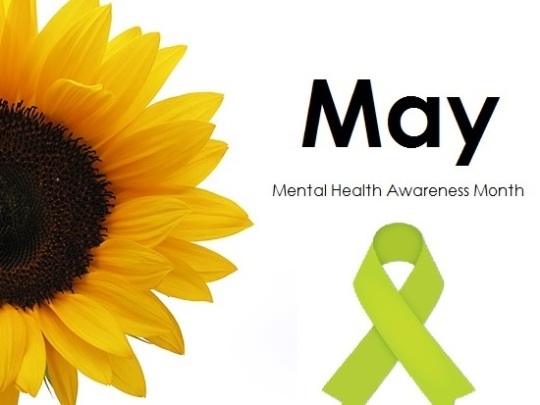A month ago, many were shocked by the news of Maddie Yates, a high school student from Louisville, Kentucky who committed suicide after posting a video about her decision to do so on Youtube.
And as events like these do, it brought up many peoples’ thoughts and feelings about suicide. And what always seems to pop up, amongst the outpouring of love and apologies and sorrow, is the one person who takes it upon themselves to call the person who took their life selfish for doing so. “Think about your family,” they say. “Think about the people who love you. It’s selfish of you to do that to them. Maybe they should have thought of them before doing something so selfish.”
And I can understand the concept. How could someone think about one of their family members finding their body lying motionless and still find the gall to kill themselves? How could someone imagine the pain their family and friends would feel in their absence and still go through with their suicide? How could someone be so selfish?
At the age of fifteen, I was hopelessly depressed, and had been for at least a couple of years, though undiagnosed. Four years earlier my brother, my best friend and idol, had passed away, slapping me out of a place of innocence and into a harsh world without him. Now fifteen, my parents sent me to a new school that I hated where I had very few friends that felt more like a prison than a high school. I barely saw my former friends and was kept in my house except for when I went to school. I grew to feel worthless and alone. Every day was painful to go through and eventually, I thought of how I could escape it all if I just took my own life. My parents could be rid of the burden I was becoming on them, their lifeless daughter, roaming aimlessly, haunting their home. Everything would be better for us all
if I were dead.
It was a recurring thought, one that first came into my head a few months after my brother died at the age of eleven, thoughts that turned into action. They were the darkest parts of my life but I’ve made it through to the other side, though not without mental scars to remind me of where I have been. When I hear about others who have taken their lives those scars throb in pain for the ones who saw no other escape. But those scars set on fire when in the presence of someone who insists on the selfishness of a person who took their own life. And though I speak from experience, I speak objectively to the need of change when it comes to how some view these individuals. For there is trouble in the thinking that people who commit suicide or attempt it are selfish, and it comes about in two ways:
One, the idea that these people don’t think about their families and their friends when they think about or make the decision to take their lives. The biggest problem: it is almost impossible to assume the feelings and thoughts that these people might have unless you have been where they are. It is so simple to say, “How could you not think about your family and how they would feel, what this would do to them?” when you’ve never hit that bottom.
Even Maddie Yates had trouble struggling with the idea of selfishness in her video, possibly convinced because of the words of others that insist that people who think about it or plan to take their own lives are selfish, but her words don’t express selfishness. They express pain, a loss of hope; they see no other way:
“I know this is selfish. You know, the doctor prescribed Prozac for depression and anxiety, but those are just fancy words for “selfish”. I know that I’m going to hurt everyone who loves me and I really do love them too. But I’ve been like this for so long, and there’s still a chance that the worst day might still be coming. And I just don’t see how this is a bad idea because it’s like someone’s on the 12th floor, and the room behind them is on fire. And they’re standing on the window ledge and they have a choice whether or not to jump and get away from the fire or just stay and die a slow, excruciating death. It feels like that.”
She felt that there was no other way to escape the pain she was feeling, the hopelessness, the loneliness. She saw no other solution but to continue suffering and let her pain burn her alive. And that’s what being suicidal is like. No one immediately jumps to taking their lives on a whim. It’s a perceived solution that comes about after being battered and battered, over and over again until your heart and mind are weathered and worn and you can’t go on.
People who think about attempting suicide or who commit it do think about their families. They sit on their beds staring at the instruments they might use to take their lives. Stare at them and think about the ones they love. They think about their mothers and fathers trying to explain to their little brothers and sisters why they won’t see their big sibling anymore. They think about their pets who will go looking for them. They think about their friends who will all wonder what they could have done. And the visions of the people they love being crushed by their death hurts. It pains them immensely. Imagine that burden, the burden of knowing you could hurt those you love in such a way. Why would anyone put themselves through that? Because it’s the only way to escape the burden of the pain they are feeling. The love of our families and friends is one that can lift us up but if you are stuck in the deepest hole you’ve ever been in, stuck there for years, that pain can hurt you and hold you down even more.
The other trouble with thinking that those who think about or commit suicide are selfish is a familiar one, related to the troublesome way that many people view those suffering from mental illness, the idea that suicidal people are thinking about suicide with a mind like theirs – a healthy mind. But the mind that is seriously considering suicide is not a healthy mind, like that of the person who can decide how selfish the committing of suicide is. A person who commits suicide is often depressed and suffering mentally. They are suffering from an illness that is affecting even the one organ that controls everything about their bodies, the central command center. Calling a mentally diseased person selfish for thinking about or wanting to commit suicide is like punishing a sick child for vomiting on their bedsheets. It is a symptom of something serious and sinister under the surface. No person is programmed to want to take their own life. What person would want to? Unless their mind wasn’t working the way it is supposed to. Unless their mind is affected by something that would convince their mind that the only solution for the pain they are feeling is to kill themselves, to take themselves from the people they love.
Some people say of suicidal individuals, “I’ve had rough times too. I’ve had a hard time and life hasn’t been easy for me. It’s not easy for anyone. But I didn’t kill myself. Plenty of people haven’t.” But this type of thinking emphasizes the difference between the mind of someone who suffers from a mental illness and the mind of one who does not and this is what we need to understand and explain. Individuals who think about or commit suicide are people who need help. They are suffering from things that alter their minds in ways someone without a mental illness couldn’t imagine. Mental illnesses distort the mind, make it see and hear things that aren’t there, and feel things it shouldn’t. They turn capable people into sacks of skin that can barely get themselves out of bed and out their front door.
Instead of punishing these people and calling them selfish, we should look into fixing what’s wrong. Instead of punishing them for exhibiting a symptom, let us go to the source and help free them from those symptoms. These people are not selfish, they are ill, hurting, and often alone. They don’t deserve our judgement but our help, our open arms, our open ears.
We might not be able to save those who are already gone.
We might not be able to save Maddie.
But we can save people like her, like fifteen year old me.
We can save so many others, but first we must put away our pointing fingers and be willing to give them our whole hand.
If you or someone you know is considering suicide, seek help. Call the National Suicide Prevention Lifeline at 1-800-273-8255.
You have worth. You deserve to live. The world needs you. We need you.












